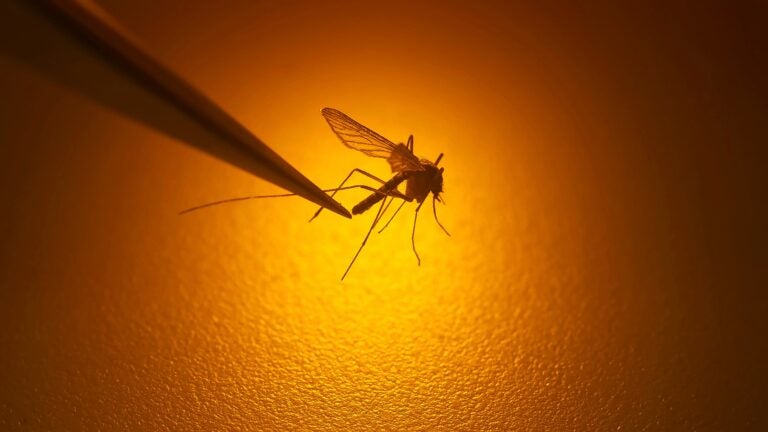Local News
It is the first time this year that the virus has been detected in the state.

The mosquito-borne illness eastern equine encephalitis has been detected in Massachusetts for the first time this year, state health officials announced Wednesday.
The virus was detected in a mosquito sample collected on July 21 in Belchertown, the Department of Public Health said.
In a statement, Public Health Commissioner Robbie Goldstein said the positive test is a reminder for residents to take measures to protect themselves from mosquito bites this season.
“This is around the time we would expect to find EEE in mosquitoes in Massachusetts, especially after an active EEE season last year with four recorded human cases,” Goldstein said. “This is only a first finding and mosquito surveillance will be key to tracking any developing areas of increasing risk.”
EEE is a rare but serious and potentially fatal infection that has no cure. The virus is spread to humans through the bite of an infected mosquito. It can trigger brain swelling, fever, and coma, and it kills approximately a third of the people who contract it. Survivors can face severe neurological disabilities and complications.
There were four human cases of EEE in Mass last year and one person died. Four horses were also infected last year.
According to the state, no human or animal cases have been detected in 2025.
“EEE activity in Massachusetts tends to occur in outbreak cycles,” State epidemiologist Catherine Brown said in a statement. “When EEE is found in mosquitoes at this point in the season, the risk may increase throughout the rest of the summer.”
Officials are urging residents to take precautions, like using insect repellent and covering up bare skin, to prevent bites. Residents can also drain standing water around their properties and install or repair screens to help reduce the risk of bites.
The peak biting time for mosquitoes is dusk to dawn, officials said.
“Consider rescheduling outdoor activities that occur during the evening or early morning in areas of high risk,” officials said.
Residents can check the state’s map that tracks the risk for mosquito-borne illnesses in Massachusetts to determine the risk for EEE in their area.
Sign up for the Today newsletter
Get everything you need to know to start your day, delivered right to your inbox every morning.


